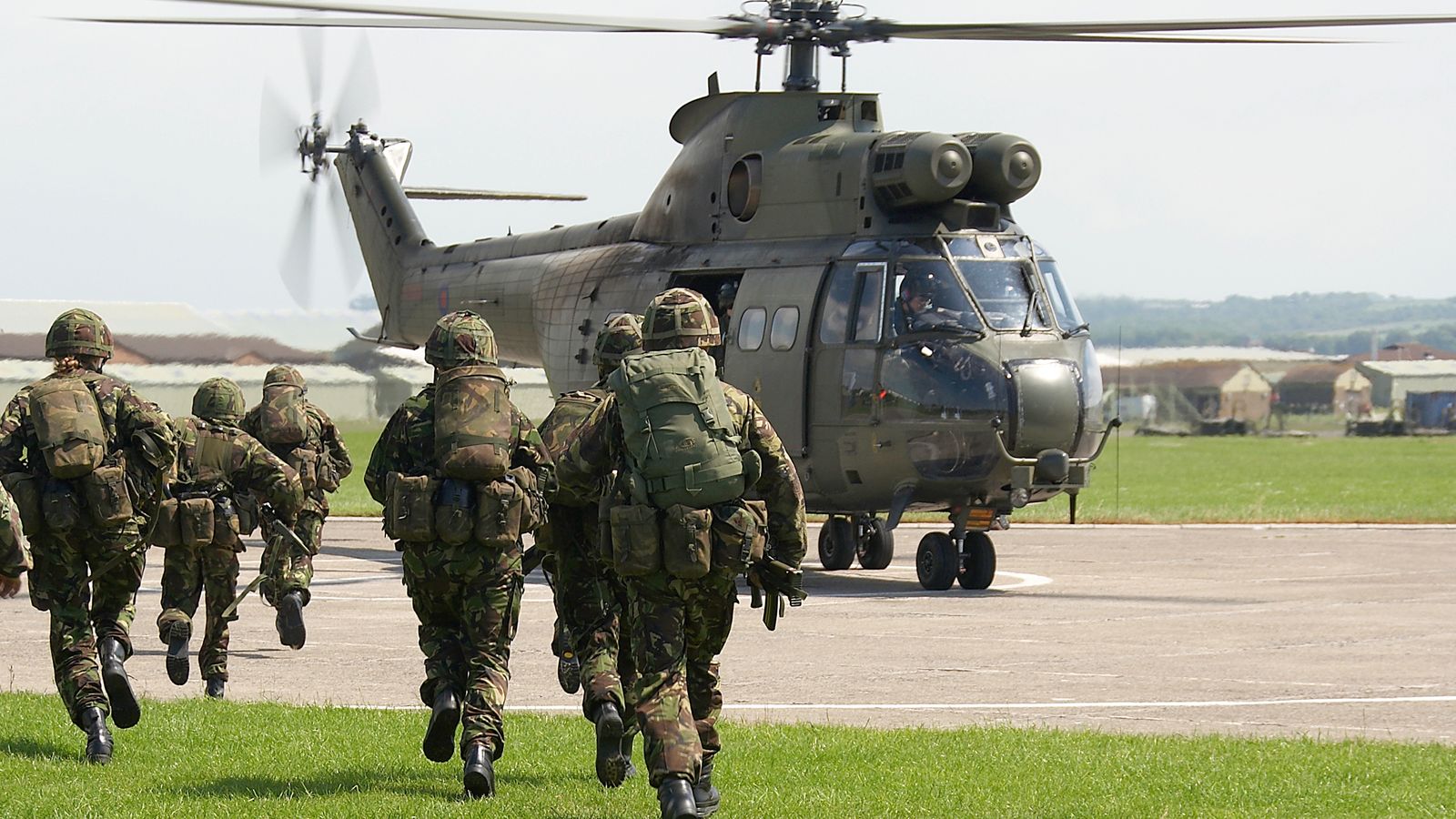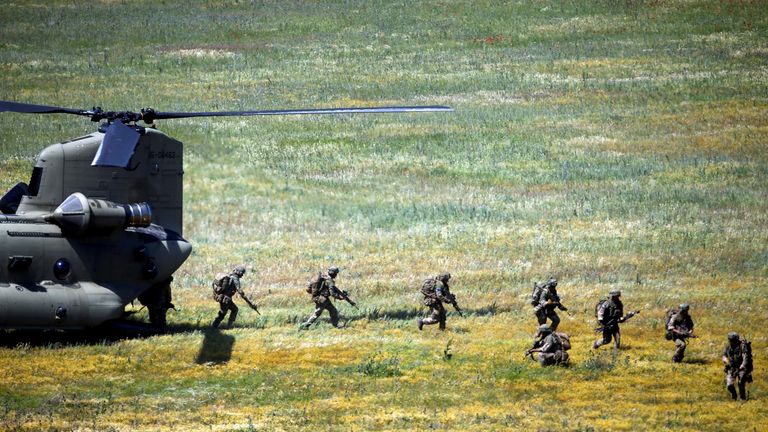The defence secretary has disputed suggestions the size of the British Army could shrink significantly after warnings the UK risks a repeat of the 1930s without more investment.
Grant Shapps told the Sunday Morning with Trevor Philips Show that under the Conservatives, the strength of the army will not dip below its current level of around 73,000.
Politics Live: Disappointing’ for Israel to reject two-state solution
It comes after a former army chief hit out at the “shrinking size” of the force, which he said had plunged from 102,000 in 2006 to 74,000 today and was “falling fast”.
Writing in The Times, General Lord Dannatt said there was “a serious danger of history repeating itself”, pointing to the 1930s when the “woeful” state of the UK’s armed forces failed to deter Hitler.
Asked about these comments, Mr Shapps acknowledged numbers had fallen over the past decade – but he disputed the suggestion it could drop to half the size it was under Lord Dannatt’s time at the helm.
“It’s not projected to go down to 50,000. It’s actually, specifically, to 73,000 plus the reserves,” he said.
Pressed over whether under the Tories, the size of the army would not fall below this level, Mr Shapps said: “That’s correct.”
He added: “It isn’t a question of how many men and women you have on the ground only, it’s about how lethal your armed forces are.”
The size of the overall armed forces was around 188,000, Mr Shapps said.
It comes after the secretary of state warned the world could be engulfed by wars involving China, Russia, North Korea and Iran in the next five years – raising concerns about the UK’s military capability and how much was being spent on defence.
Lord Dannatt said the UK’s defence spending as a proportion of GDP should rise to 3%, warning that if the armed forces cannot deter future aggression from Moscow or Beijing “it will not be a small war to contend with but a major one”.
The government has pledged to spend 2.5% of GDP on defence by the end of the decade.
Mr Shapps said “we’re comfortably above 2%” and will get to 2.5% “when conditions allow”.
Read More:
British troops to be deployed to trial response to Russian invasion
Grant Shapps defends new role as defence sec – but admits he lacks knowledge about army
Asked if he believed the commitment should rise to 3%, something he called for before taking the cabinet position, Mr Shapps said the “world needed to spend more”, but the UK is the biggest spender in NATO after the US.
He said that “in the long-term western spending needed to be higher”.
However, he suggested that was not currently a government priority, with ministers currently eyeing pre-election tax cuts.
Mr Shapps said: “We are committed to spending more when conditions allow. But I also think that it is true to say that people do want to see more of the money that they earn kept.”
Chancellor Jeremy Hunt has hinted at tax cuts in the upcoming spring budget, comparing himself to the late chancellor Nigel Lawson, who slashed personal taxation while serving in Margaret Thatcher’s government.
The Financial Times reported Mr Hunt could be handed up to £10bn in extra headroom against his fiscal targets in the Office for Budget Responsibility (OBR) forecasts, paving the way for the measure.


